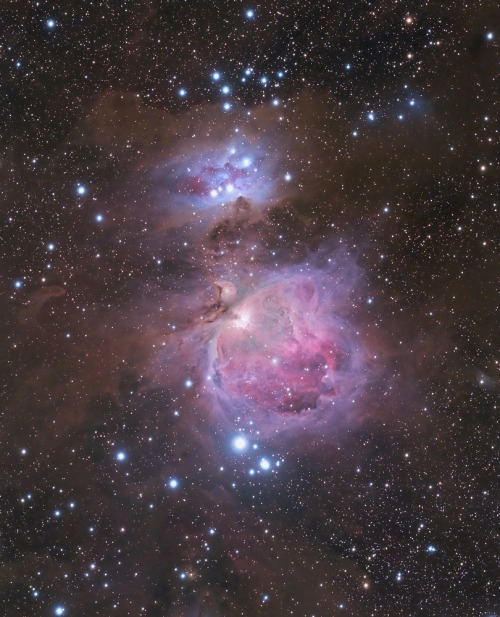Re-edited My Pic To Reveal More Details
re-edited my pic to reveal more details

Our graceful and faithful Moon
More Posts from Chbnb and Others

Madeira | danielkordan

The Orion Nebula (M42), M43 and the Running Man Nebula.
Credit: Chad Quandt

Clearest image of Phobos ever taken, Moon of Mars

Gamma Cygni Region

This surreal timelapse, landscape, panorama spans predawn, blue hour, and sunrise skies. Close to the start of spring in the northern hemisphere, this amazing lapse was captured between 4:30 and 7:00 am from a location overlooking northern New Mexico's Rio Grande Valley. In tracked images of the night sky just before twilight begins, the Milky Way is cast across the southern (right) edge of the panoramic frame. Toward the east, a range of short and long exposures resolves the changing brightness as the Sun rises over the distant peaks of the Sangre de Cristo Mountains. In between, exposures made during the spring morning's tantalizing blue hour are used to blend the night sky and sunrise over the high desert landscape.
Image Credit & Copyright: Paul Schmit

Petr Horálek on Instagram

M43: Orion Falls : Is there a waterfall in Orion? No, but some of the dust in M43 appears similar to a waterfall on Earth. M43, part of the Orion Molecular Cloud Complex, is the often imaged but rarely mentioned neighbor of the more famous M42. M42, which includes many bright stars from the Trapezium cluster, lies above the featured scene. M43 is itself a star forming region and although laced with filaments of dark dust, is composed mostly of glowing hydrogen. The entire Orion field, located about 1600 light years away, is inundated with many intricate and picturesque filaments of dust. Opaque to visible light, dark dust is created in the outer atmosphere of massive cool stars and expelled by a strong outer wind of protons and electrons. via NASA

NGC 602 In The Flying Lizard Nebula


Stunning New Images of Jupiter From NASA’s Juno Spacecraft (read article here)

Orion’s Cradle
Credits: Tony Hallas
-
 chbnb reblogged this · 5 years ago
chbnb reblogged this · 5 years ago -
 chbnb reblogged this · 5 years ago
chbnb reblogged this · 5 years ago
